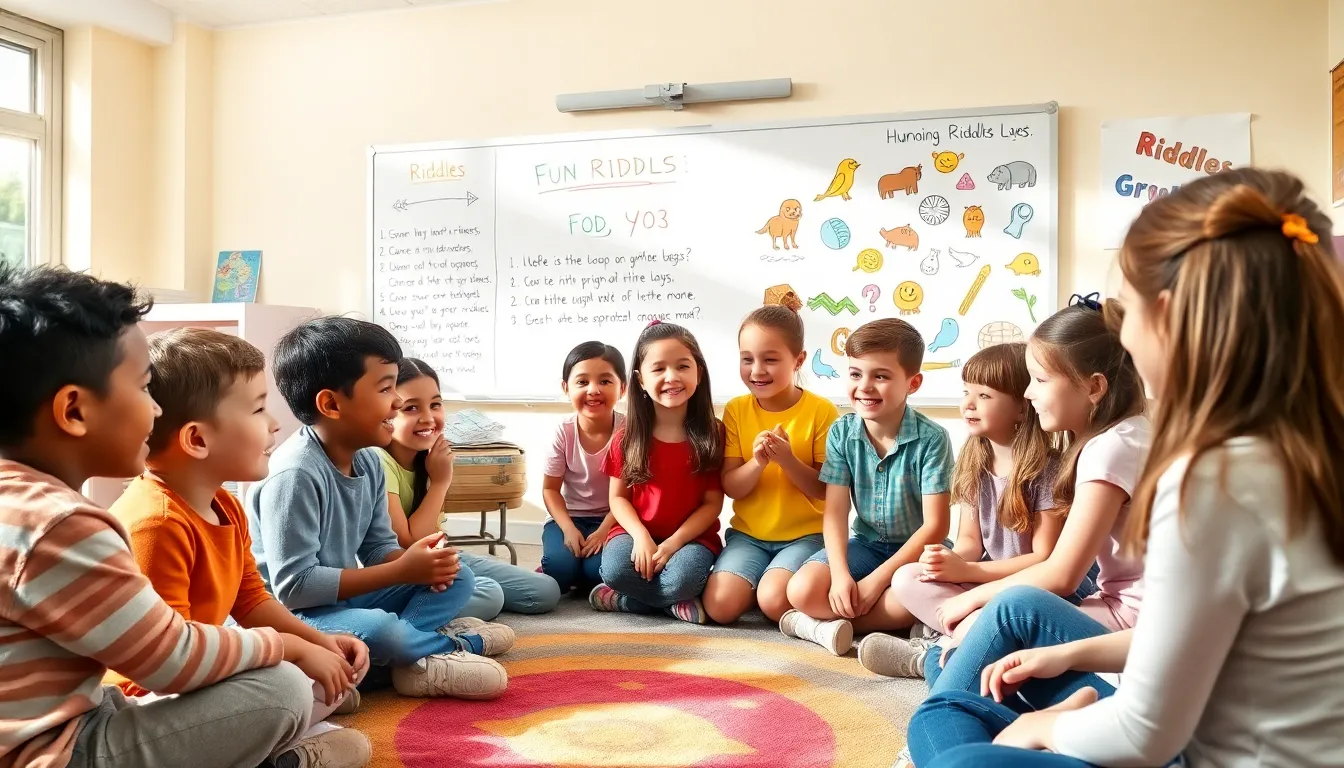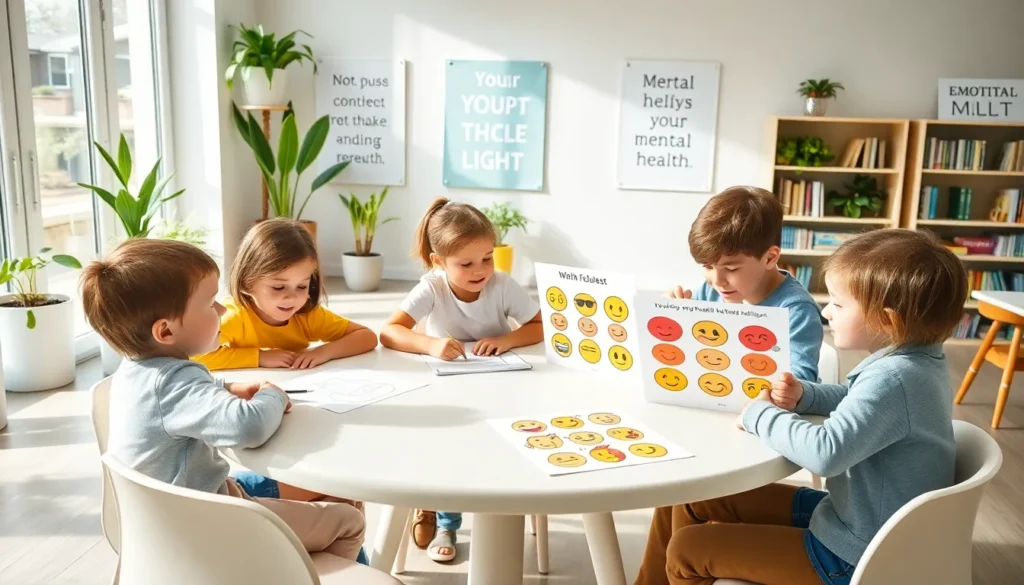Who would have thought that a few clever questions could spark so much joy? Riddles for elementary kids offer more than just giggles: they pave the way for learning while having a blast. Imagine your little Einstein engrossed in decoding puzzles that tickle their brain and boost their creativity. Crack open your imagination, and let’s jump into the wonderful world of riddles.
Table of Contents
ToggleBenefits Of Riddles For Kids

Riddles are not just playful diversions: they are invaluable tools in a child’s learning arsenal.
Enhancing Cognitive Skills
When kids engage with riddles, they switch their brains into high gear. Solving these clever puzzles sharpens their critical thinking and boosts memory. Every twist and turn in a riddle helps them categorize information and strengthens their analytical skills. As they wrestle with each riddle, they learn to think outside the box, nurturing their ability to solve complex problems in later life.
Fostering Creativity and Imagination
Riddles encourage children to stretch their imaginations. They act as gateways from reality to fantasy, allowing kids to explore new possibilities. Every time a child figures out an answer or creates their own riddle, they build confidence in their creative abilities. This enhances not only their problem-solving skills but also their capacity for innovative thinking, a skill that will serve them well in the future.
Encouraging Problem-Solving Abilities
Riddles challenge kids to think critically about their surroundings. Whether it’s identifying what runs but never walks or what has keys but can’t open locks, they learn to analyze clues effectively. This exercise not only enhances their logical reasoning but also equips them with strategies they can use in life outside the classroom. The process of deciphering a riddle is akin to tackling a math problem or resolving a conflict, making these skills essential as children grow.
Types Of Riddles For Kids
Riddles come in many flavors, and it’s important to explore these varieties. Each type offers a unique challenge, making learning fun and engaging.
Classic Riddles
Classic riddles often challenge children with age-old puzzles. They encompass a broad range of topics, ensuring that there’s something for everyone. For instance, “What has to be broken before you can use it?” The eager minds of children will ponder until they uncover that the answer is an egg.
Animal Riddles
Animal riddles paint a picture of our furry and feathered friends. They are perfect for little ones who love exploring nature. A question like, “What has four legs but never walks?” will lead them to ponder the answer: a chair. These riddles combine learning about animals with critical thinking.
Math Riddles
Math riddles make numbers fun. By posing questions that involve basic operations through riddles, kids can develop their math skills without feeling overwhelmed. For example, “I am an odd number. Take away one letter, and I become even. What number am I?” The answer? Seven. Math becomes a playful adventure through the world of riddles.
Seasonal and Holiday Riddles
There’s a riddle for every season. Riddles related to holidays or specific times of the year can enhance the festive spirit. Imagine children giggling over a riddle like, “What do you call a snowman with a six-pack? An abdominal snowman.” Seasonal riddles can connect children to traditions while keeping their minds agile.
How To Incorporate Riddles Into Learning
Integrating riddles into various learning situations enriches the experience significantly.
In the Classroom
Teachers can begin the day with a riddle to warm up students’ brains. This quick exercise not only gets everyone thinking but also fosters a collaborative learning environment, as kids can discuss and work together to arrive at an answer. It turns the classroom into a fun-filled zone where critical thinking takes center stage.
At Home
Parents can pull out riddles at the dinner table or during family game night. It transforms routine moments into engaging conversations. The joy of solving riddles together nurtures bonds, enhances communication skills, and adds a layer of fun that makes learning feel effortless.
During Playdates and Gatherings
Playdates can become more exciting with the integration of riddles. Kids can challenge each other, creating friendly competitions that stretch their imaginations. Instead of passive screen time, energizing discussions around clever riddles create memorable interactions.
A Collection Of Fun Riddles For Kids
To make it easier for parents, educators, or anyone who wants to entertain kids with some fun, here’s a collection of riddles to keep them guessing.
Classic Riddles Collection
- What has a head and a tail but no body? (A coin)
- What has words but never speaks? (A book)
- I speak without a mouth and hear without ears. What am I? (An echo)
Animal-Themed Riddles Collection
- What is black and white and read all over? (A newspaper, specifically about zebra stories.)
- What animal can you always find at a baseball game? (A bat)
Math Riddles Collection
- If two is a company and three is a crowd, what are four and five? (Nine.)
- I am a number that’s doubled if you add one more. What am I? (A square number, like 4, because it’s 4 squared. Please note that this could vary based on interpretations.)
These riddles are just the beginning. When kids share them with friends and family, the bond strengthens as they create their own unique moments.





